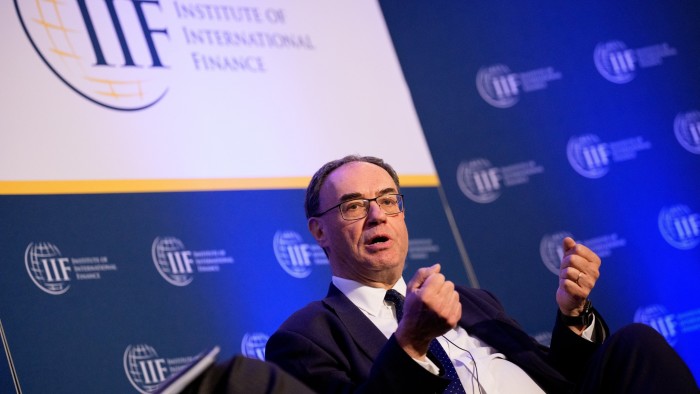Unlock the Editor’s Digest for free
Roula Khalaf, Editor of the FT, selects her favourite stories in this weekly newsletter.
The writer is research associate at the Financial Markets Group at the London School of Economics and a former member of the Monetary Policy Committee
Donald Trump has unsettled US Treasuries on more than one occasion this year. Recently, the US president’s criticism of Jay Powell led to concerns he would fire the Federal Reserve chair, although the ensuing market reaction has meant a retreat from that for now. Before that, the surprisingly high tariff rates announced on “liberation day” also elicited Treasury market volatility.
Given a historical tendency for gilt yields to go up when US interest rates rise, it is important that the UK authorities respond to the threat of contagion from Trump’s actions. Recall that higher gilt yields are likely to slow corporate investment, hit the housing market and put pressure on the government to either cut spending or raise taxes. In an already challenging environment, we can ill-afford lower growth.
The Bank of England has an important role to play here. The markets remember that the BoE did help to stabilise the gilt market after the Truss-Kwarteng mini-budget in September 2022. But that intervention came after 20-year gilt yields had already moved by more than 1 percentage point in three trading days. While the bank’s welcome move helped avoid a much worse outcome, we need to recognise that even the shortlived rise in gilt yields inflicted much damage to business and consumer confidence.
It might be better to take pre-emptive measures on this occasion. BoE governor Andrew Bailey has taken a step in this direction, telling a conference in Washington this week that BoE needs to “take seriously” the risks to growth from Trump’s tariff policies. That is a dovish signal on rates.
I suggest that the bank goes further by reminding markets that unwarranted upward moves in gilt yields unnecessarily tighten financial conditions — in effect implying that short-term interest rates should be lower. Of course, this will require the BoE’s Monetary Policy Committee to form a judgment about whether a move in gilt yields is unwarranted. As the “fair value” of gilts is a judgment rather than something that is observable, central bankers might be diffident about making such pronouncements. I suggest that the MPC is bolder on this occasion as some of the events in the US — such as an attack on Fed independence — have little direct impact on the “fair value” of gilt yields.
In this regard, the BoE might be well-advised to reconsider how it communicates. By way of example, recall that 30-year gilts suffered their largest one day fall since the Truss crisis on April 9. The bank pointed to spillovers from problems in the US Treasury market as it made a welcome announcement on April 10 that it was postponing an auction of long-dated gilts.
But, it missed a great opportunity to help gilts rationally and durably decouple from US Treasuries by then saying that the postponement of the auction carried no information about the future direction of monetary policy. Instead, as I argued above, if the markets know that the BoE might reduce short-term interest rates in the future to offset any unwarranted tightening coming from higher US Treasury yields, then gilt yields are less likely to go up in sympathy.
The BoE should also consider going even further. Some of Trump’s actions have hurt the longer-maturity end of the bond yield curve by more than the short end. A more direct way of ensuring that long-term UK rates do not rise in a damaging way would be to emphasise that the existing quantitative tightening programme — the unwinding of the BoE’s long run bond-buying operations to support the economy — is not on autopilot and that amendments to it might signal the direction of future monetary policy.
In normal times, allowing QT to operate in the background has some advantages, not least because we understand it less well than changing short-term interest rates. But, we are in treacherous waters now and the BoE might come to appreciate the flexibility afforded by having an extra instrument to help limit unwarranted moves in longer-term gilt yields.
Although Trump has now said that he will not fire Powell, markets will continue to worry about future threats to the independence of the Fed. The UK can help distinguish itself by going further in terms of entrenching BoE independence. I have previously argued that allowing the bank to set its own inflation target would be helpful. It would reduce the “inflation risk premium” embedded in gilt yields. An announcement of this kind could allow gilts to durably decouple from US Treasuries. Given the ill effects of some of the actions of the Trump administration that are undermining the Treasury market, that is important.
https://www.ft.com/content/25d98ac2-f86c-41f5-92cc-a69024ba5234


